Threat Cybersecurity
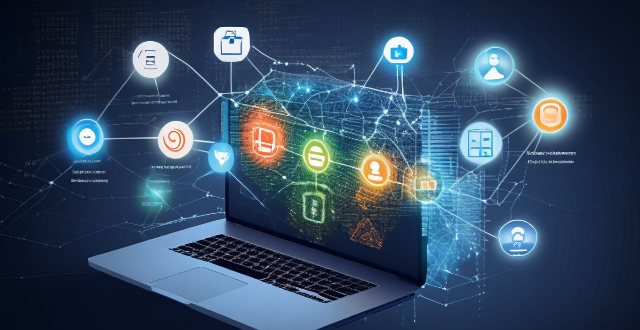
What role does AI play in improving cybersecurity ?
AI significantly enhances cybersecurity by offering advanced threat detection, risk assessment, and automated response mechanisms. It improves the efficiency and accuracy of defenses but also presents new challenges that require innovative solutions. AI's role in cybersecurity includes advanced threat detection through anomaly detection and predictive analytics, automated risk analysis for optimized defense strategies, enhanced malware detection using deep learning models and behavioral analysis, improved identity verification with biometric authentication and adaptive access controls, network automation and repair for self-healing networks and vulnerability management, and phishing and spam prevention through email security solutions and real-time alert systems. However, AI's integration into cybersecurity also introduces potential misuse by attackers, data privacy concerns, and algorithmic transparency and bias issues. Addressing these challenges is crucial for fully leveraging AI's potential in enhancing cybersecurity while upholding privacy, ethical standards, and resilience against emerging threats.

What is the role of cybersecurity in protecting communication systems ?
The text discusses the importance of cybersecurity in protecting communication systems by ensuring data confidentiality, integrity, and availability. It outlines measures such as encryption techniques, access control, digital signatures, hash functions, network uptime, redundancy, and disaster recovery plans. Additionally, it suggests best practices like regular updates, firewalls, user awareness training, strong authentication mechanisms, and incident response plans to enhance cybersecurity in communication systems.
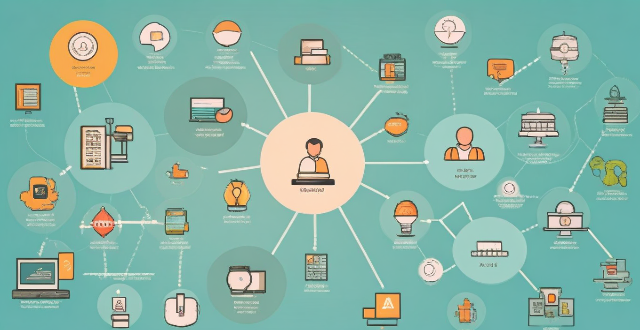
What is social engineering in the context of cybersecurity ?
Social engineering refers to the psychological manipulation of individuals or groups into divulging confidential information. This tactic is often employed by cybercriminals to gain access to sensitive data, systems, or networks without being detected. In the context of cybersecurity, social engineering is a significant threat that exploits human behavior rather than technical vulnerabilities. There are several types of social engineering attacks, including phishing attacks, pretexting, baiting, quid pro quo attacks, tailgating or piggybacking, vishing (voice phishing), and smishing (SMS phishing). To protect against social engineering attacks, organizations can implement education and awareness programs, policies and procedures, technology tools, and an incident response plan. By understanding the various types of social engineering attacks and implementing appropriate countermeasures, organizations can significantly reduce their risk of falling victim to these deceptive tactics.

How does the threat of climate change influence our cognitive processes and decision-making ?
The influence of climate change threat on cognitive processes and decision-making is significant. It can affect perception of risk, trigger emotional responses, and alter information processing. Additionally, it shifts priorities in decision-making, necessitates long-term planning, and requires collaboration among various stakeholders.
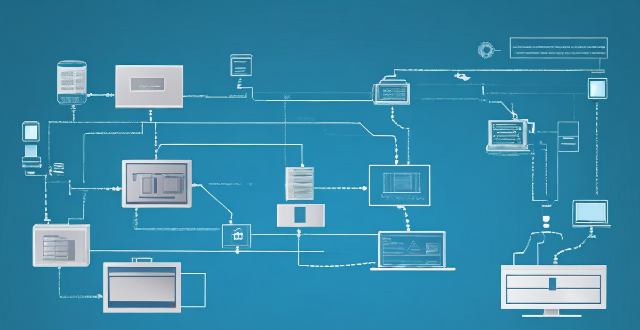
What is the role of firewalls in network security protection ?
Firewalls are crucial for network security protection, acting as a barrier between trusted and untrusted networks to prevent unauthorized access and block malicious traffic. They monitor network activity for potential threats, with various types including packet-filtering, stateful inspection, application-level, and next-generation firewalls. Firewalls offer benefits such as access control, threat prevention, visibility and auditing, and compliance enforcement. Best practices for deploying firewalls include implementing a multi-layered defense strategy, regularly updating firewall rules and policies, monitoring logs and alerts, conducting regular penetration testing, and training staff on firewall management and maintenance.

What are the latest trends in network security protection ?
Network security is a crucial aspect of modern computing, and it's constantly evolving to keep up with new threats. Here are some of the latest trends in network security protection: - AI and ML are becoming increasingly popular for detecting and responding to cyber threats. - IoT devices have poor security features or lack them altogether, making them easy targets for hackers. - With more businesses moving to the cloud, ensuring data is secure is essential. - Threat intelligence involves collecting information about potential threats and using it to improve defenses. - The zero trust model assumes that no one should be trusted by default, including those within an organization's network.
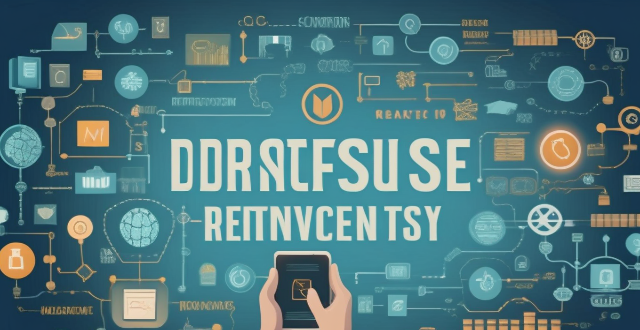
What are some common threats to digital identity and how can I prevent them ?
The text discusses the threats to digital identity and how to prevent them. It outlines common threats such as phishing attacks, malware and viruses, identity theft, data breaches, and ransomware. To prevent these threats, it suggests using strong passwords, enabling two-factor authentication, keeping software up-to-date, being cautious with emails and links, monitoring online accounts, using antivirus software, securing your network, and educating yourself about cybersecurity. By taking these precautions, individuals can reduce the risk of falling victim to threats to their digital identity.

What are the main threats to communication security ?
The text discusses the main threats to communication security, which include eavesdropping and unauthorized access, malware and viruses, social engineering and phishing, insider threats, and DoS attacks. It also provides mitigation strategies for each threat, such as encryption, secure networks, physical security, antivirus software, firewalls, software updates, awareness training, email filters, multi-factor authentication, access controls, monitoring and auditing, termination procedures, rate limiting, content delivery networks (CDNs), and intrusion detection systems (IDS).

Is there a difference between personal safety training for men versus women, and if so, what are those differences ?
The main differences in personal safety training between men and women are physical, situational awareness, and verbal communication. Men generally have more muscle mass and strength than women, making them more physically capable of defending themselves in certain situations. Women are often taught to be more aware of their surroundings and potential threats, as they may be more vulnerable to attacks. Additionally, women are often taught to use verbal cues to deter an attacker, while men are encouraged to use a more assertive tone when confronting a potential threat. Tips for men include practicing self-defense techniques that utilize strength and size advantage, learning how to properly use weapons such as pepper spray or a stun gun, being aware of surroundings and potential threats, trusting instincts, using a firm tone when confronting a potential threat, and avoiding aggressive language that could escalate the situation. Tips for women include focusing on learning techniques that can help escape from an attacker's grasp, taking a class in martial arts or self-defense specifically designed for women, always being aware of surroundings and potential threats, trusting instincts, using verbal cues to deter an attacker, and avoiding engaging with an attacker beyond what is necessary to protect oneself.
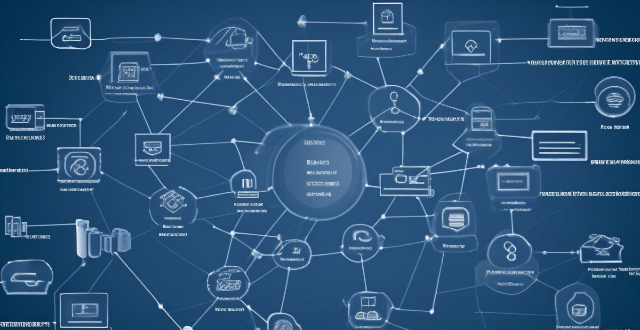
How can I detect and prevent network intrusions ?
To detect and prevent network intrusions, implementTo detect and prevent network intrusions, implement approach that includes: conducting training employees on security best practices, and regularly updating software and firmware. This comprehensive approach can significantly reduce the risk of network intrusions and protect an organization's valuable assets.
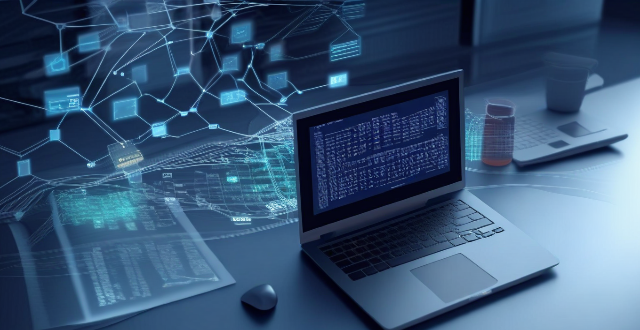
How do hackers gain access to computer systems ?
Hacking, also known as cyber hacking, involves the use of unconventional or illicit means to gain unauthorized access to a digital device, computer system, or network. This process is facilitated by exploiting security vulnerabilities or overcoming security measures to break into a computer or network with the intent to steal data. Hackers employ a variety of methods to gain access to computer systems, including: Exploiting Security Vulnerabilities, Phishing Scams, Malware, Brute Force Attacks, Man-in-the-Middle (MitM) Attacks, and Denial of Service (DoS)/Distributed DoS (DDoS) Attacks. The consequences of hacking activities include identity theft, financial fraud, data breach, and ransomware attacks. It is crucial for individuals and organizations to stay informed about potential threats and take proactive measures to protect their digital assets.
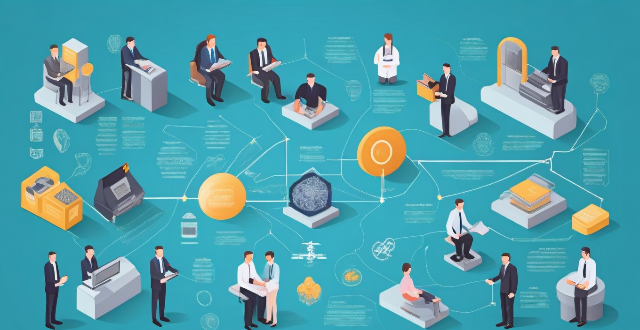
What are the most promising job sectors for the future ?
The most promising job sectors for the future include artificial intelligence and machine learning, renewable energy, healthcare technology, cybersecurity, and automation and robotics. These fields offer a wide range of opportunities for individuals with diverse skills and backgrounds. Data scientists, machine learning engineers, AI researchers, solar installers, wind turbine technicians, battery engineers, telemedicine specialists, medical device engineers, health information technicians, ethical hackers, cybersecurity analysts, risk management specialists, robotics engineers, automation specialists, and drone pilots are just some of the roles that will be in high demand as technology continues to advance. Pursuing careers in these areas can position individuals for success in an ever-changing job market.

What are the main threats to global biodiversity ?
The article discusses the main threats to global biodiversity, which include habitat loss and fragmentation due to urbanization, agricultural expansion, and mining and extraction; climate change with rising temperatures, altered precipitation patterns, and extreme weather events; pollution from chemicals, noise, and light; overexploitation through overfishing, hunting and poaching, and harvesting of plants; invasive alien species competing for resources, transmitting diseases, and altering habitats; and human population growth leading to increased consumption, waste production, and conflict with wildlife. These threats are interconnected and require coordinated efforts from various stakeholders to implement sustainable practices and protect our planet's diversity of life.
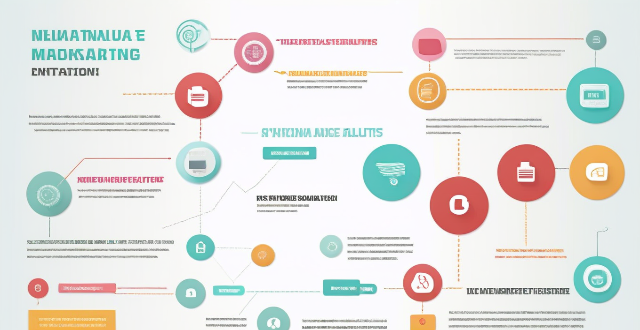
What are the benefits and drawbacks of social media marketing for small businesses ?
Social media marketing offers small businesses increased brand awareness, cost-effective marketing, targeted advertising, customer engagement, and a competitive edge. However, it also presents challenges such as being time-consuming, facing negative feedback, difficulty in measuring ROI, dependency on algorithm changes, and cybersecurity risks. Small businesses should consider these factors when deciding whether to incorporate social media marketing into their overall strategy.

How do extreme weather events related to climate change affect national security ?
This analysis explores the connection between extreme weather events and national security, discussing how climate change affects various sectors such as food supply, economy, public health, defense, migration, sovereignty, and cybersecurity. It emphasizes the need for integrated strategies to address these challenges and promote societal resilience against climate change impacts.
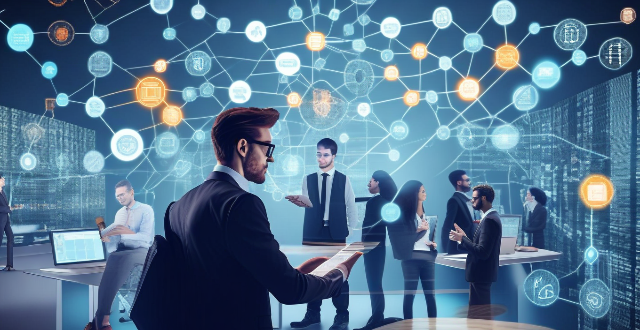
How does Fintech influence the job market in the finance industry ?
The influence of fintech on the job market in the finance industry has led to the creation of new roles and changes in the skillset required for existing positions. Fintech companies have increased demand for software developers, data scientists, and cybersecurity experts. Additionally, specialized financial roles like fintech startup founders, regulatory compliance officers, and customer experience managers have emerged. Traditional finance roles such as bankers, accountants, and investment advisors now require proficiency in digital tools and an understanding of automation and data analytics. As technology continues to advance, the finance industry workforce will need to adapt continuously to stay relevant in the changing job market.
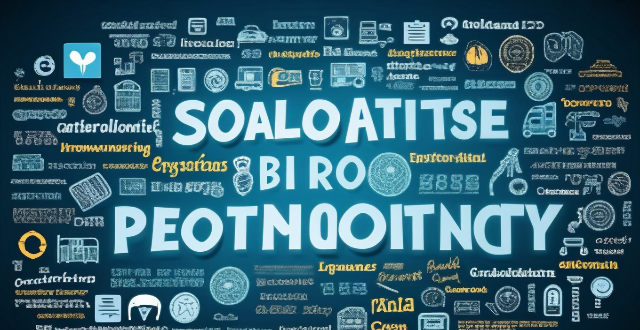
What are the challenges faced in implementing Smart Grid Technology ?
The text discusses the challenges faced in implementing smart grid technology, which can be broadly classified into technical, economic, and social categories. Technical challenges include interoperability issues such as integration with existing infrastructure and lack of standardization, as well as cybersecurity concerns like data privacy and infrastructure vulnerability. Economic challenges involve high initial investment costs, limited government support, and difficulties in finding suitable financing options. Social challenges encompass public acceptance and awareness issues, trust concerns among consumers, legal and regulatory hurdles related to data privacy and energy policies, and policy uncertainty. Overcoming these challenges is essential for achieving a more efficient, reliable, and sustainable energy future.
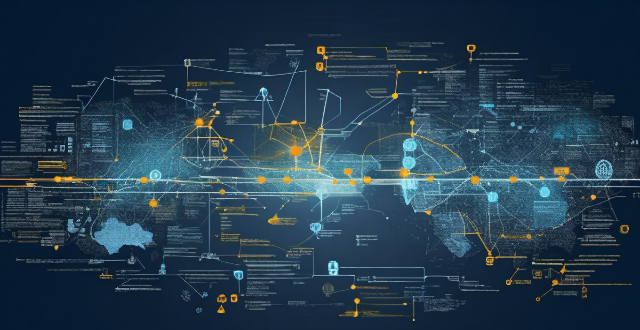
What are the challenges faced by financial regulators ?
Financial regulators face challenges in keeping up with technological changes, balancing innovation and stability, addressing global issues, enhancing transparency, and maintaining public trust. They must adapt to digitalization, manage cybersecurity risks, promote fintech growth, cooperate internationally, respond to economic downturns, improve disclosure standards, strengthen oversight mechanisms, communicate effectively, and address public concerns.

How can I protect my digital identity online ?
In today's digital age, protecting your online identity is crucial. Cybercriminals are constantly on the lookout for ways to exploit personal information for financial gain or other malicious purposes. Here's how you can safeguard your digital identity: Use strong and unique passwords, enable two-factor authentication (2FA), keep software up to date, be cautious with personal information, use secure networks, monitor your online presence, and educate yourself about cybersecurity. By following these steps, you can significantly enhance the protection of your digital identity and reduce the risks associated with being online.

How does energy transition affect national security and geopolitics ?
Energy transition has significant implications for national security and geopolitics, driven by concerns over climate change, energy security, and economic competitiveness. It promotes diversification of energy sources, enhances energy independence, and addresses cybersecurity risks, strengthening national security. Energy transition can alter power dynamics, mitigate climate change, enhance economic competitiveness, and contribute to environmental security, all of which have significant geopolitical consequences. As the world continues to transition towards renewable energy, it is essential for countries to develop strategies to navigate the complex interplay between energy transition, national security, and geopolitics.
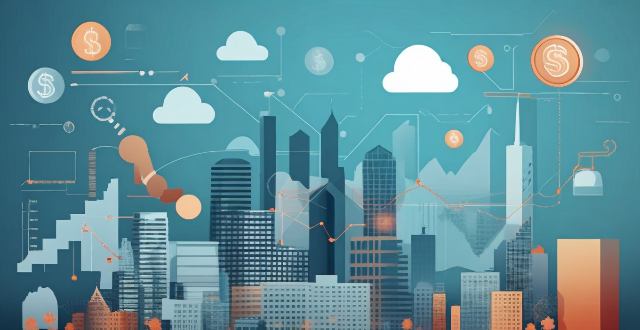
What role does technology play in modern finance and banking ?
Technology has revolutionized the finance and banking industry by enhancing efficiency, improving customer experience, and driving innovation. Automation, streamlined processes, and cost reduction have made financial services more efficient. Personalization, accessibility, and advanced cybersecurity measures have improved customer experiences. Fintech startups, blockchain technology, and cryptocurrencies are driving innovation in the industry. As technology continues to evolve, it will play an even greater role in shaping the future of finance and banking.
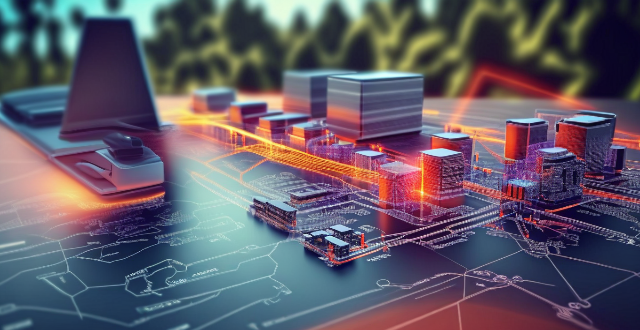
What are the benefits of Smart Grid Technology ?
Smart grid technology offers numerous benefits including improved reliability, enhanced efficiency, increased sustainability, greater transparency and control for consumers, and improved security.

How can we ensure secure communication in the age of digital technology ?
In today's digital age, secure communication is crucial. Encrypt data using HTTPS and email encryption tools, use strong passwords that are regularly updated, enable two-factor authentication, install antivirus and anti-malware software, be cautious of phishing attacks, use VPNs on public Wi-Fi networks, regularly update your devices, and educate yourself and others about cybersecurity threats and best practices.
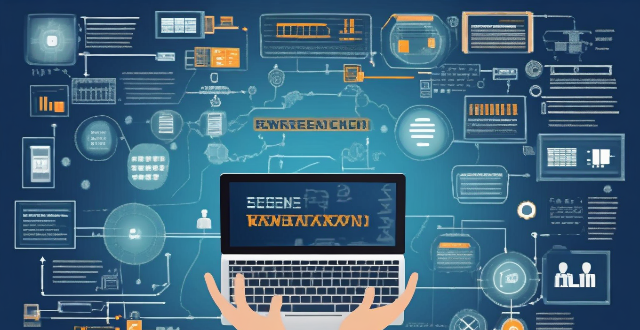
How can I ensure my business is protected from cyber threats ?
To ensure your business is protected from cyber threats, consider implementing measures such as educating employees on cybersecurity, using strong passwords and two-factor authentication, keeping software up-to-date, using antivirus and anti-malware software, securing networks with firewalls and encryption, backing up data regularly, limiting access to sensitive information, monitoring network activity, and developing incident response plans.

What is data encryption and how does it work ?
Data encryption is a crucial cybersecurity measure that transforms plaintext into ciphertext, protecting it from unauthorized access. It involves the use of complex algorithms and secret decryption keys. Encryption is significant for securing data at rest, in transit, and during processing, helping meet compliance requirements and reducing financial risks associated with data breaches. Its evolution includes historical precursors and wartime innovations, with AI expected to enhance its capabilities in the future.

What are the benefits of using a virtual private network (VPN) for network security protection ?
The text discusses the benefits of using a Virtual Private Network (VPN) for network security protection. It highlights seven key advantages: 1. **Encryption and Secure Data Transmission**: VPNs encrypt internet traffic, securing data transmission, especially on public Wi-Fi networks. 2. **Anonymity and Privacy**: By routing connections through remote servers, VPNs mask IP addresses and physical locations, enhancing online privacy. 3. **Access to Geo-Restricted Content**: VPNs enable users to bypass geographical restrictions, accessing blocked or restricted content. 4. **Protection Against Bandwidth Throttling**: VPNs can prevent ISPs from managing certain types of traffic by encrypting it. 5. **Enhanced Security on Public Networks**: Using a VPN on public networks adds an extra security layer against potential hackers. 6. **Remote Access to Work Networks**: For businesses, VPNs provide secure remote access to company resources. 7. **Avoid Censorship**: In regions with internet censorship, VPNs can help users access an unrestricted internet. The note emphasizes choosing a reputable VPN provider and practicing good cybersecurity habits for optimal protection.

What is Smart Grid Technology ?
Smart grid technology is a modernized electrical grid infrastructure that utilizes advanced communication, control, and automation technologies to improve the efficiency, reliability, and sustainability of electricity delivery. It integrates renewable energy sources, storage devices, and intelligent monitoring systems to optimize the distribution and consumption of electricity. The key features of smart grid technology include intelligent monitoring, distributed energy resources, demand response management, electric vehicle integration, cybersecurity, and automation. The benefits of smart grid technology are improved reliability, increased efficiency, enhanced sustainability, consumer empowerment, and economic advantages.
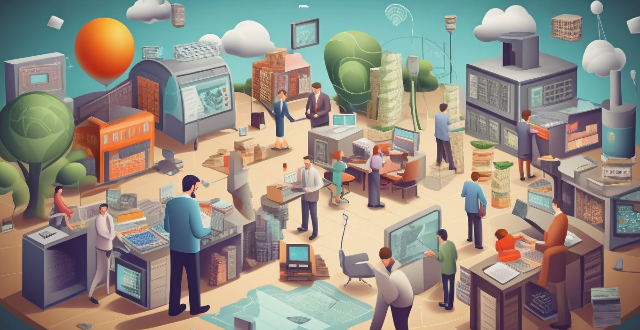
What are the risks of investing in cryptocurrencies ?
Investing in cryptocurrencies carries multiple risks including market volatility, security threats, legal and compliance issues, liquidity concerns, and a high risk of scams. Investors should be aware of these challenges before entering the cryptocurrency market.
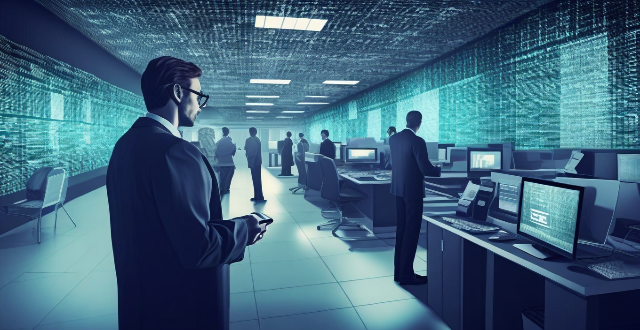
What are the security concerns related to Smart Grid Technology ?
Smart grid technology, which uses digital communication technologies to monitor and control the flow of electricity, offers benefits such as increased efficiency and reliability. However, there are security concerns that need to be addressed, including cyber attacks, data breaches, insider threats, physical security risks, and interdependencies with other critical infrastructures. It is essential to implement strong cybersecurity measures, strict access controls, and robust physical security protocols to protect the system's integrity and confidentiality.

How can energy storage be integrated with smart grid technologies ?
Energy storage plays a pivotal role in the development and operation of smart grids. It provides flexibility to the system, enabling it to manage variable renewable energy sources, enhance reliability, and improve efficiency. The benefits of energy storage in smart grids include balancing supply and demand, integrating renewable energy, improving grid stability and reliability, enhancing efficiency, and saving costs. Methods of integration include distributed energy resource management (DERMS), advanced metering infrastructure (AMI), grid optimization software, and energy management systems (EMS). However, challenges such as interoperability, cybersecurity, regulation and standardization, and cost must be addressed. Integrating energy storage with smart grid technologies is crucial for achieving a modernized, efficient, and sustainable electrical grid.